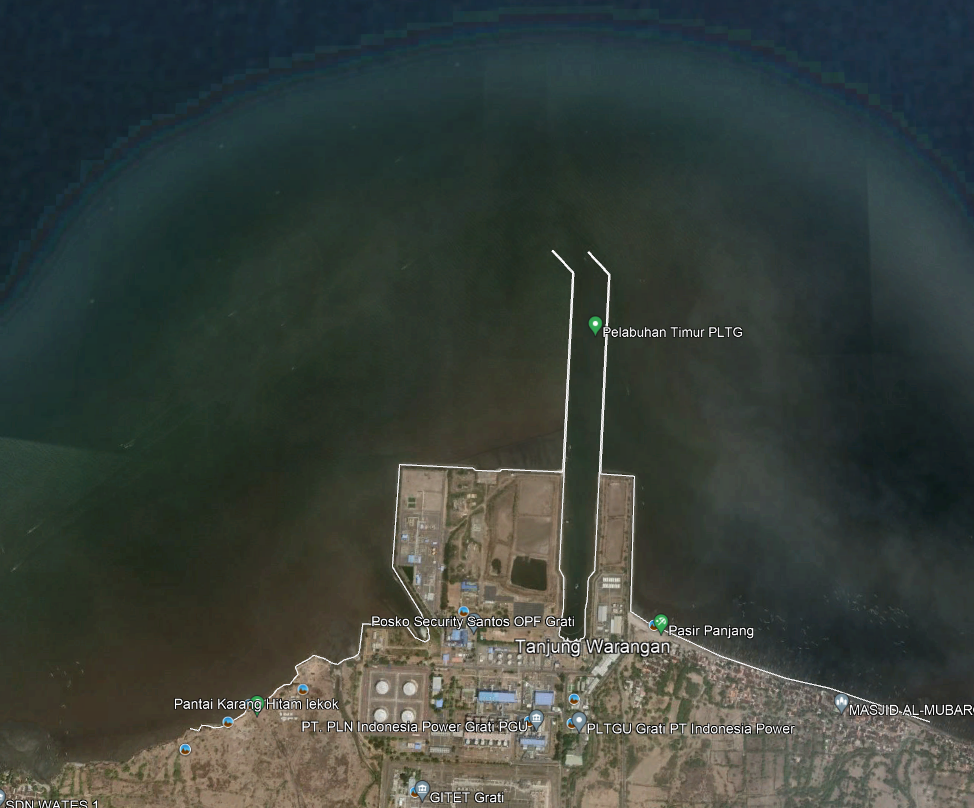Jetty Extension Study Due to Addition of Power Capacity on Thermal Water Dispersion at PLTGU Grati Pasuruan
Main Article Content
Abstract
Downloads
Article Details

This work is licensed under a Creative Commons Attribution 4.0 International License.
References
G. H. Jirka, “Multiport diffusers for heated disposal: a summary,” Journal of the Hydraulics Division, vol. 108, no. 12, pp. 1425–1468, 1982.
S. H. Chieh, “Two-dimensional numerical model of thermal discharges in coastal regions,” Journal of Hydraulic Engineering, vol. 113, no. 8, pp. 1032–1040, 1987.
J. M. Beckers and J. J. Van Ormelingen, “Thermohydrodynamical modelling of a power plant in the Zeebrugge Harbour,” Journal of Hydraulic Research, vol. 33, no. 2, pp. 163–180, 1995.
Y. Yunli,W. Deguan,W. Zhigang, and L. Xijun, “Numerical simulation of thermal discharge based on FVM method,” Journal of Ocean University of China, vol. 5, no. 1, 2006.
E. A. M. Deabes, “The impact of thermal power stations on coastline and benthic fauna: case study of el-burullus power plant in egypt”, Results in Engineering, 1–14, 2020.
D. Mayhew,L. Jensen,D. Hanson, P. Muessig, “A comparative review of entrainment survival studies at power plants in estuarine environments”, Environ Sci., Pol. 3, 295-301, 2000.
J. Capuzzo, “Impact of power-plant discharges on marine zooplankton: a review of thermal, mechanical and biocidal effects”, Helgol Mar. Res. 33, 422–432, 1980.
M.B. Abbott,H.M. Petersen, O. Skovgard, “On the Numerical Modelling of Short Waves in Shallow Water”, Journal of Hydraulic Research, 16(3), 1978.
Ramming, H.G. dan Kowalik, Z., 1980, Numerical Modelling of Marine Hydrodynamics: Application to Dynamic Physical Processes, Elsevier Scientific Publishing Company, Amsterdam.
Badan Pusat Statistik (BPS), Jumlah Penduduk Pertengahan Tahun [Internet], www.bps.go.id., 2022. Available from: https://www.bps.go.id/indicator/12/1975/1/jumlah-penduduk-pertengahan-tahun.html
PLN, PORTAL - PLN [Internet], Pln.co.id. 2022 [cited 2023 Jul 26], Available from: http://www.pln.co.id/2015
C. Paotonan, S. Rahman, A. A. Mas’ud M, and T. P. Putra, “The Technical Capacity of Jetty Structure Analysis of The Lampia Port ”, zonalaut, vol. 1, no. 2, pp. 49-56, Jul. 2020.
N. H. Teguh,L. Yuliati,D.B. Darmadi, “Effect of seawater temperature rising to the performance of Northern Gorontalo small scale power plant”, Case Studies in Thermal Engineering, 1-14, 2022.
H.G. Ramming,Z. Kowalik, “Numerical Modelling of Marine Hydrodynamics”, Applications to Dynamic Physical Processes, Elsevier Science, 1978.

